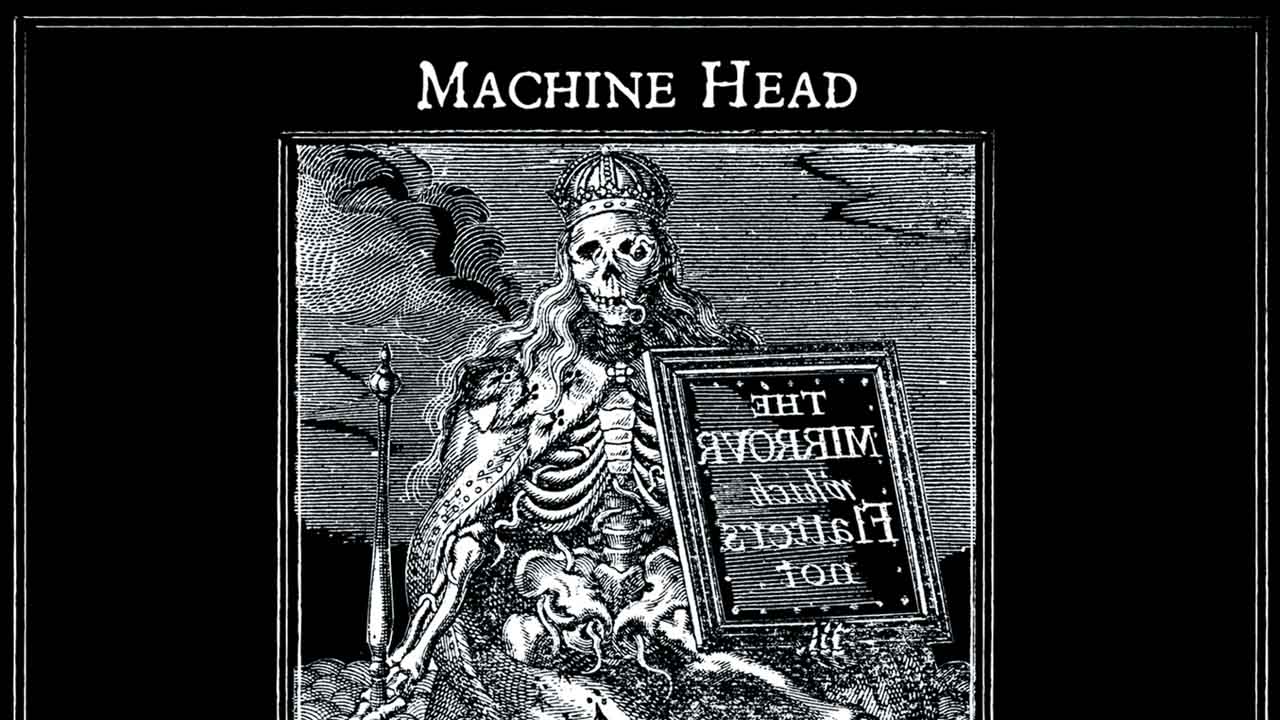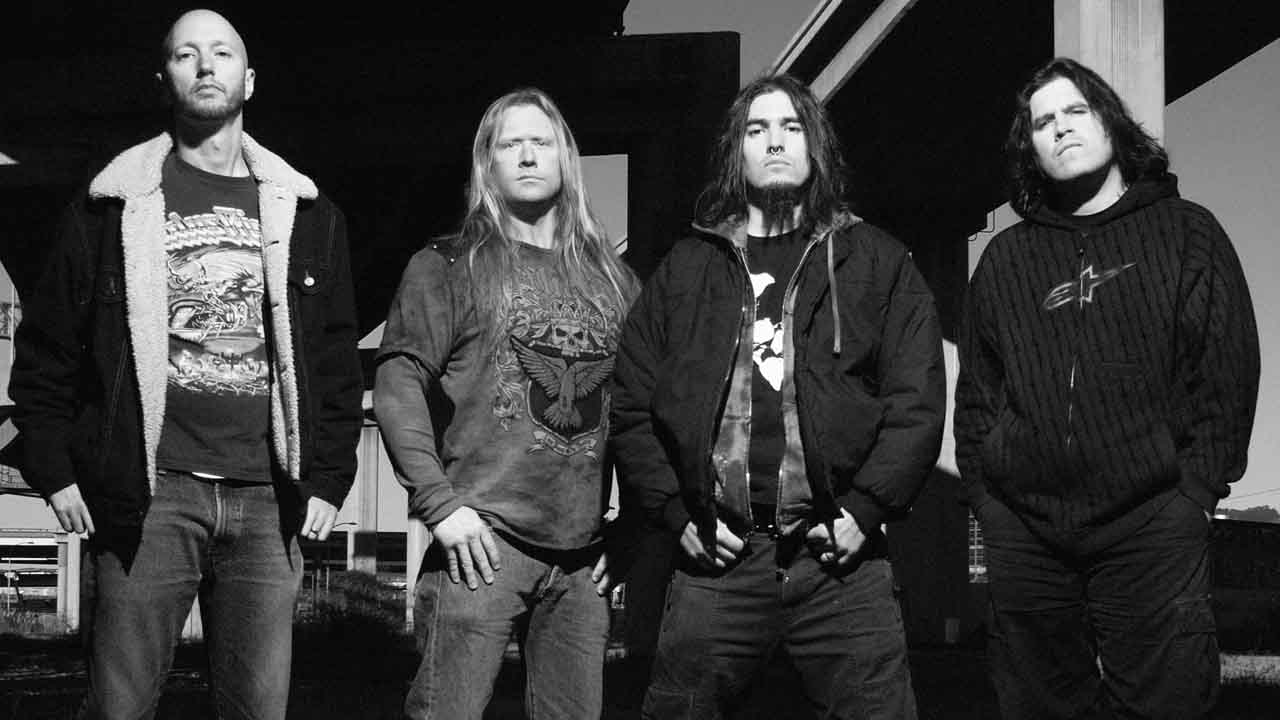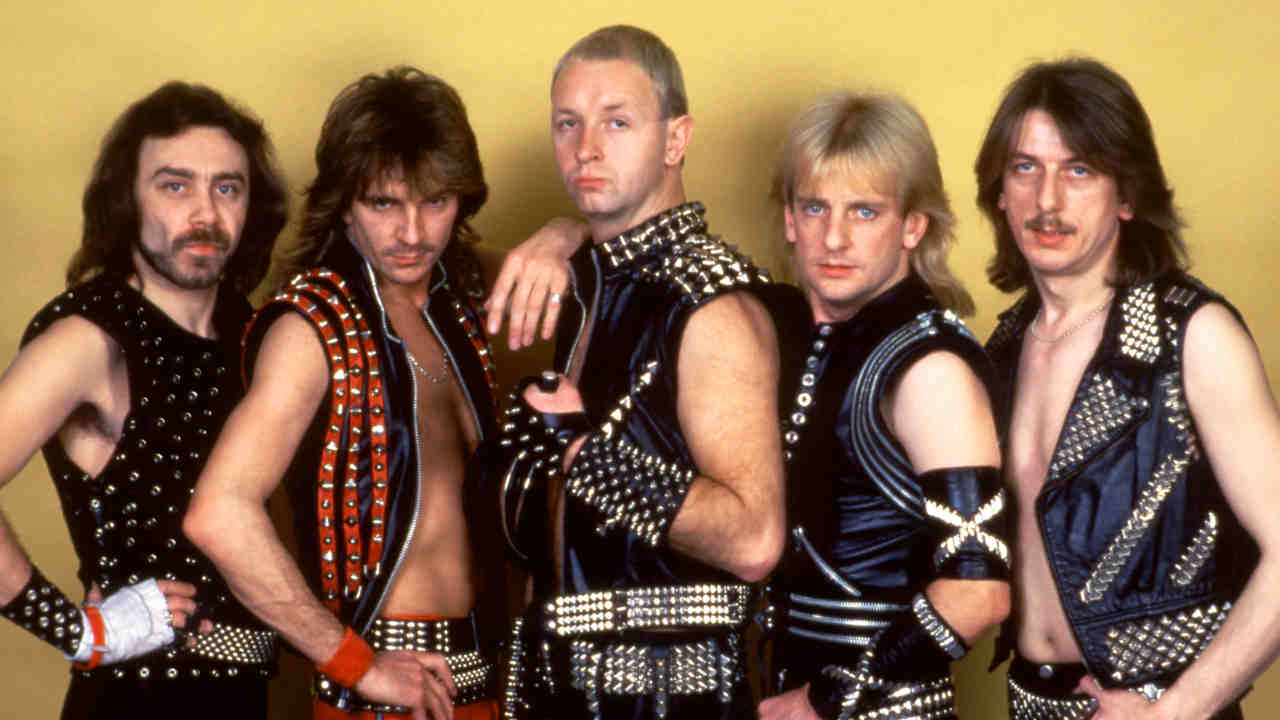Why The Blackening is Machine Head’s greatest artistic statement
How Machine Head made a Master Of Puppets for the 21st century

After their spectacular return to popular and critical acclaim on Through The Ashes Of Empires, and particularly after the four-year wait that followed, album number six for Machine Head came with a certain weight of expectation. Yet even the most devout fan would have struggled to predict the staggering achievement the subsequent magnum opus delivered or, for that matter, everything that followed it.
The arrival of The Blackening on March 26, 2007 came as the heavy metal seas shifted. Metalcore had shown itself to be past its creative zenith, the inspired giving way to the formulaic, and the continued rise of the likes of Opeth and Mastodon hinted at an increasing desire among the metal public for albums capable of breaking the familiar conventions. Machine Head’s implacable creativity may have marked them out as an ensemble able to stand out from the crowd, but the manner in which the mould was kicked to fucking pieces with their newest album left jaws so firmly dropped, car jacks needed to be employed to return them to their functional positions.
- Machine Head: From breakup to resurrection in less than a year
- The 10 best Machine Head songs
- Machine Head's Burn My Eyes: riots, religious cults and the album that rebooted metal
- These are the 100 greatest metal songs of the 21st century (so far)
Robb Flynn had warned listeners what they might expect as early as August the previous summer. In a post on the band’s website, he said: “We have officially narrowed down our song selection to eight songs. What, only eight?! That’s right fuckers, eight songs! We have a 10-minute opening track that’s practically four songs in one, with stop-on-a-dime changes and a rollercoaster ride of molten riffage! In fact, we have three 10-minute long tracks, so even with only eight songs, the record is damn near an hour long.”
While Machine Head had long-since proven the quality of their more lengthy songs – from as far back as Violate on The More Things Change to In The Presence Of My Enemies and Descend The Shades Of Night on their previous outing – this still represented something of a departure for the Oakland quartet at a time when four-minute metal songs were still more en vogue. With hindsight, Robb had described the album succinctly and precisely, and rather than the standard waxing hyperbolic commonplace in the internet age, had arguably undersold the monstrous epic he and his bandmates were about to unleash.
While immediately sonically recognisable as Machine Head – the riffing style and guitar tone were, by this point, absolutely unmistakable – the raising of the songwriting bar and the sheer seething fury of The Blackening was such that almost overnight, the metal world suddenly seemed to drop everything and pay attention to this amazing slice of genius coming to kick the shit out of all rock’s paper tigers.
An anguished cry fades into wistful acoustic guitar to announce the flames of Clenching The Fists Of Dissent, and as they’re beginning to flicker, the feeling pervades that a genuinely special record of real gravitas is about to explode into being. When that flicker roars into an inferno and the swirling, pummelling fury kicks in, the conflagration becomes untameable, and the real brilliance of, as Hammer put it at the time, “Machine Head’s victory address” becomes apparent.
The destructive force of the trademark groove that made freedom ring with a motherfucking shotgun blast well over a decade beforehand is at its most honed and headbang-inducing here, and that Robb Flynn roar is, if anything, even more full-throated and scathing than ever before, but the manner in which they are deployed is utterly devastating.
Sign up below to get the latest from Metal Hammer, plus exclusive special offers, direct to your inbox!

The full integration of Robb’s fellow former Vio-Lence axe-swinger Phil Demmel into Machine Head seemed to spark one of the most inspired partnerships in skilful, articulate and effective shredding since a vengeful Dave Mustaine met Chris Poland – and one with a similar ability to convey that angry curl of the lip with a single lick.
That 10-and-a-half minute opener lays down the template for the full hour’s rampage, a twisting tempest whose epic duration belies an extraordinary focus, a vast odyssey without a single weak moment and a giant work without so much as a pinch of flab anywhere on its anatomy. The musical ground covered within each song is huge. Every minute little intricacy is included because it belongs there, every atmospheric patch of quieter material offering its own addition to the greater whole, and every fist-to-the-gut riff surgically precise. The astonishing thing is not the length of the songs, it is their brevity. There is no self-indulgent, chin-stroking digression, no aimless, ego-massaging fret-wanking, and the entire thing is so tight that the first listen made it feel difficult to breathe. It is small wonder the comparisons with Metallica’s absolute peak of creative perfection were the instant correlation drawn.
On an album so consistent in its distinction as The Blackening, singling out highlights becomes an almost futile exercise. Perhaps, then, it was inevitable that the most talked-about track stood out not just for its musical excellence, but for its lyrical slant Aesthetics Of Hate is a venomously, righteously indignant attack on William Grim, the author of a vicious, bile-filled article of the same title that celebrated the murder of Dimebag Darrell.
An understandably furious Robb had responded in a blog post in the immediate aftermath of the tragedy, and the despicable article praising its perpetrator, former Marine Nathan Gale. But Machine Head’s crowning glory to that point included an ultimate “fuck you!” to the author. ‘The words that I read on the screen left me fucking sick’ was an emotion that united metallers still mourning the guitar god three years on from his death, and ‘For the love of brother/I will sing these fucking words/Aesthetics of hate/I hope you burn in hell’ summed up both what the international metal fellowship felt both towards that article, and the almost indefinable spirit of metal – that we are a brotherhood, that we stand together against those who judge us, and that hell hath no fury like ours.
In a time when some metal bands almost seemed to be wanting to distance themselves from the tag, Machine Head threw both arms around it, embraced it and roared their allegiance to it like a celebration. The three-year marathon tours with the likes of Slipknot, Trivium and particularly Metallica – for whom they almost seemed to become the house band on the Death Magnetic tours – and the ecstatic response that greeted them everywhere they went formed the most just of rewards, as was the almost omnipresence of “Machine fucking Head” chants.
Through the hook-laden pump of Now I Lay Thee Down, through the mighty anthem of Halo to the emotional closing master stroke of A Farewell To Arms, Machine Head had delivered their perfect masterpiece and gone on to establish themselves as a metal band whose greatness was in the here and now – one that embraced their metal-adoring fans and was rewarded by a devoted army growing in their wake.
Upon its release, The Blackening was hailed as the Master Of Puppets of the modern era. In 20 years’ time, a new instant classic of a heavy metal record – a glorious encapsulation of all that is great about this music and the crystallisation of an immense talent into a wondrous, indelible moment – will be hailed as that generation’s The Blackening. This is a record that will be exalted for as long as metal draws breath.
